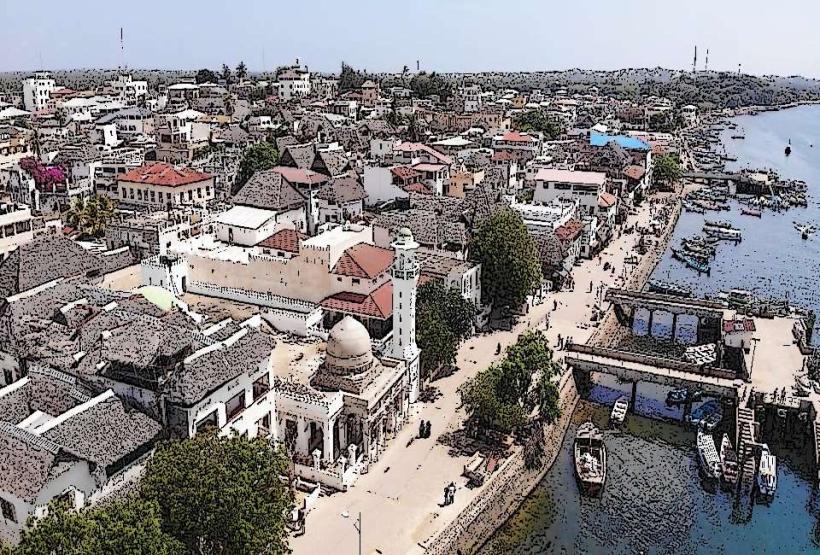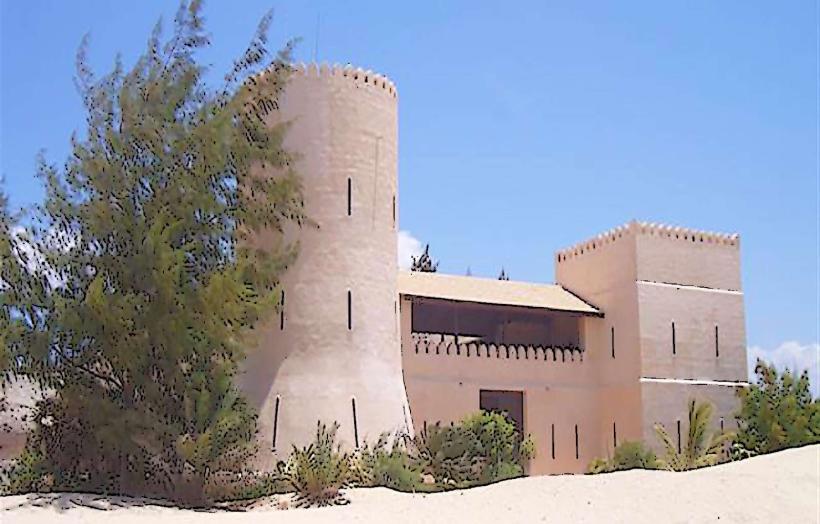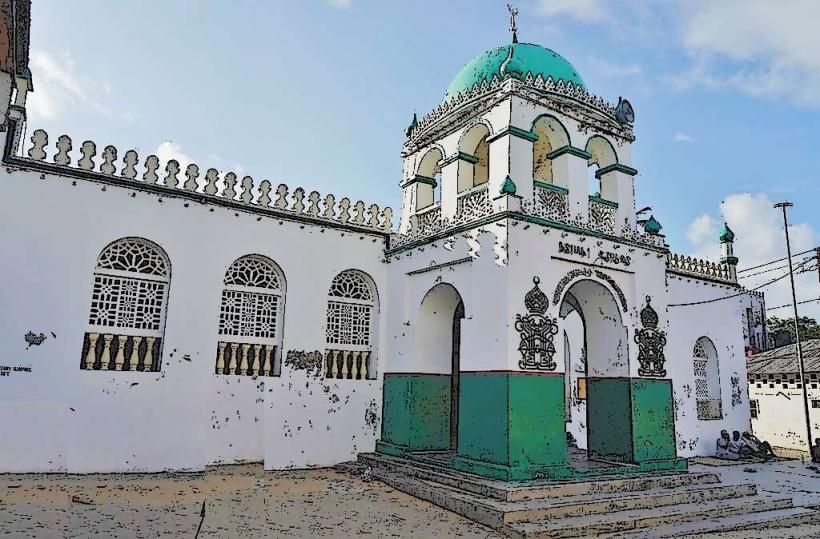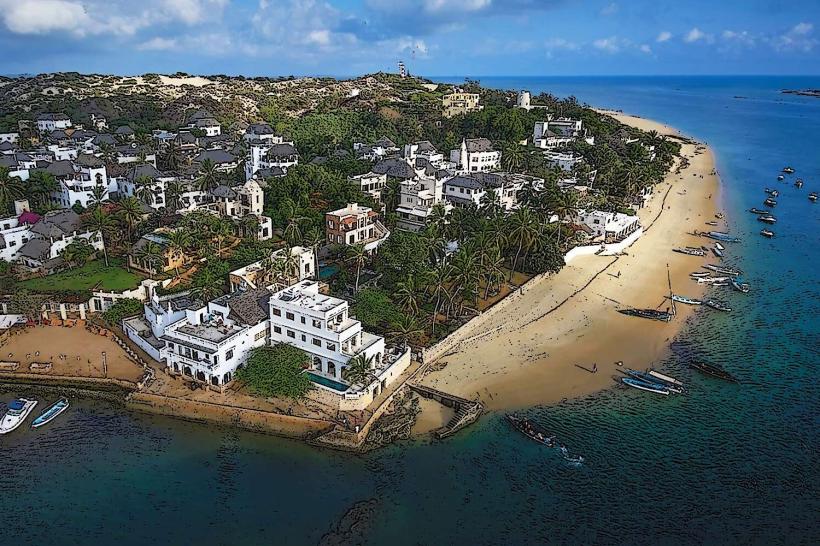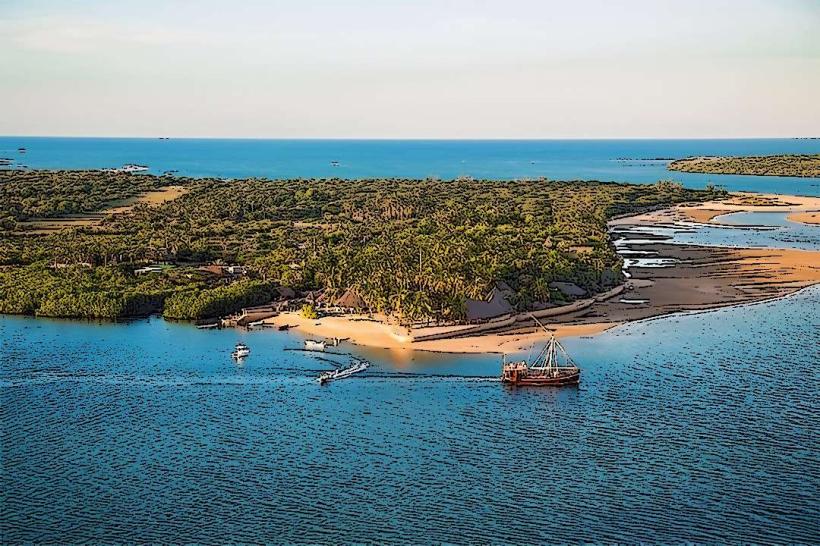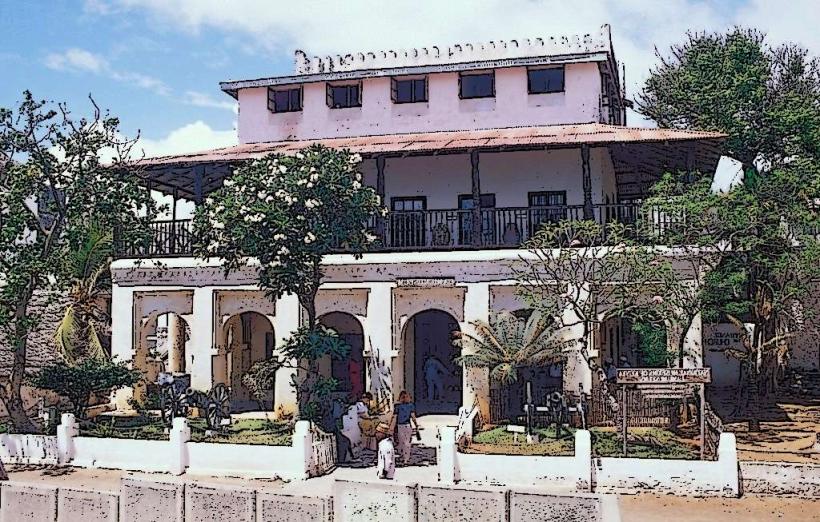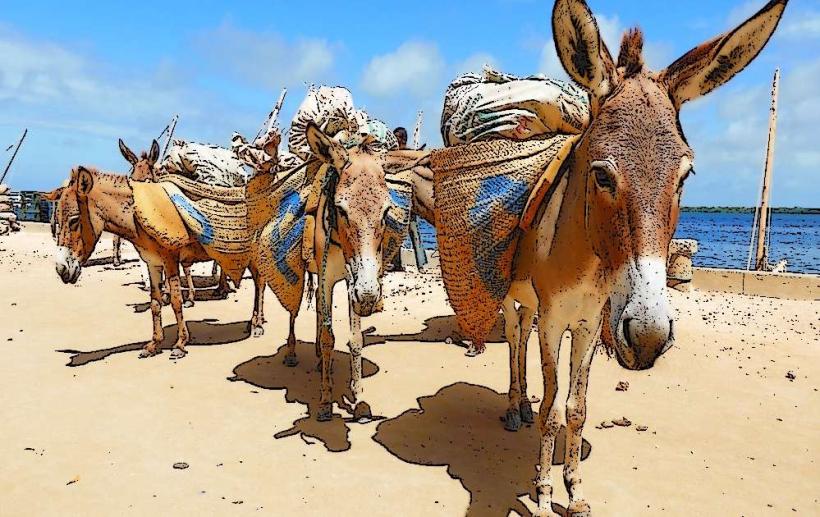Information
Landmark: Takwa RuinsCity: Lamu
Country: Kenya
Continent: Africa
Takwa Ruins, Lamu, Kenya, Africa
The Takwa Ruins are the remains of a once-thriving Swahili settlement located on Manda Island, just across the channel from Lamu Island on the Kenyan coast. These ruins are among the most atmospheric and historically rich archaeological sites in the region, offering a window into the life and culture of Swahili coastal towns from the 15th to the 17th centuries.
Historical Background:
Foundation and Flourishing: Takwa was founded around the 15th century, likely by Swahili Muslims who were part of the broader network of trade and culture that stretched along the East African coast and across the Indian Ocean. The settlement grew due to its involvement in commerce, especially trade with Arabia, India, and possibly China, dealing in items like ivory, mangrove poles, spices, and gold.
Abandonment: Around the late 17th century, the town was mysteriously abandoned. The reasons for this are not entirely clear, but theories suggest it could have been due to freshwater shortages, conflict, or religious shifts. The population is believed to have migrated to Shela Village on nearby Lamu Island.
Site Description:
The ruins of Takwa are relatively well-preserved and sit in a quiet, forested area not far from the coast. The setting is remote and peaceful, contributing to a haunting sense of history.
Great Mosque: One of the most prominent structures is the ruined mosque, which still retains a well-preserved mihrab (the niche indicating the direction of Mecca). This mosque is often the highlight of a visit, reflecting the strong Islamic foundation of the town.
Pillar Tomb: A unique and symbolic structure at the site is a pillar tomb that is believed to have been the burial place of a significant religious or political leader. The tomb's pillar was once a common Swahili architectural feature, symbolizing respect for the dead and religious piety.
Domestic Structures: Visitors can also see the remains of houses, some with multiple rooms and evidence of courtyards. These homes were typically constructed from coral stone, with thick walls and small, intricately designed niches, suggesting a relatively high standard of living.
Cultural and Archaeological Importance:
Swahili Heritage: Takwa is a crucial site for understanding Swahili culture, which blends African, Arab, and Persian influences. The town's layout, architecture, and artifacts reveal a deeply religious, well-organized, and trade-oriented society.
Archaeological Insight: Excavations at the site have uncovered pottery, coins, and architectural features that shed light on the economic and spiritual life of its inhabitants. Some artifacts suggest strong connections to other Islamic port cities across the Indian Ocean.
Spiritual Legacy: Takwa is still considered a sacred site by locals, especially among the people of Shela, who believe their ancestors came from this settlement. A pilgrimage is sometimes made from Shela to Takwa, especially during religious observances.
Visiting Takwa Ruins:
Access: The ruins are accessible via dhow (traditional sailboat) or motorboat from Lamu or Shela, followed by a short walk inland through mangrove-lined paths. The journey itself is scenic and adds to the overall experience.
Experience: The site is quiet and uncrowded, offering a chance to explore in peace. With a local guide, visitors can learn more about the history, the spiritual symbolism of the structures, and the role Takwa played in the Swahili civilization.
Recommended Time: Visiting during the early morning or late afternoon is ideal, as the temperatures are cooler and the light enhances the ruins’ textures and shadows.
Preservation:
The Takwa Ruins are protected by the National Museums of Kenya, which works to maintain the site and promote understanding of its cultural significance. Despite their importance, the ruins are still relatively little-known to mass tourism, making them a hidden gem for those interested in African and Islamic history.
In Summary:
The Takwa Ruins are a captivating site that tells the story of a lost Swahili town steeped in religion, trade, and culture. With its preserved mosque, mysterious pillar tomb, and evocative ruins set in a tranquil natural environment, Takwa is a place where history, nature, and spirituality come together-offering one of the most immersive heritage experiences on the Kenyan coast.

